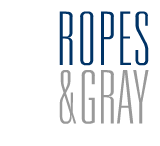|
|
|
Ropes & Gray will open Tokyo law office in fall
Law Firm News |
2007/08/07 09:11
|
Boston's Ropes & Gray is trying to tap into the lucrative intellectual-property and private equity business in Asia by opening a law office this fall in Tokyo.
The four-attorney office, the firm's first overseas, will serve both Japanese and American clients, as well as others trying to take advantage of the booming economies in Asian countries.
Two Japanese attorneys from Ropes & Gray's New York office will be among those starting up the Toyko office, the firm said yesterday.
James DeGraw, a parter at Ropes & Gray, said he's visited Tokyo and is currently taking Japanese language courses before his own transfer there this October.
Ropes & Gray already represents Japanese clients on patent and other intellectual-property issues in the U.S. One client recently asked if it could have a closer relationship with Ropes in Japan - and the idea was born for a new office, said DeGraw.
"They're trying to protect their patents and market share for their products," said DeGraw of Japanese clients in general.
But intellectual-property law isn't the only area of interest for the giant Boston law firm.
Private-equity companies, such as Bain Capital, are increasingly doing business and making deals in Asia, DeGraw said. Bain is a major client of Ropes & Gray, he said.
Other law firms have been setting up operations in Japan. Recently, Boston's Bingham law firm opened a Tokyo office.
By this fall, Bingham's Tokyo office hopes to expand with the hiring of more than 50 Japanese lawyers, according to the company's Web site. |
|
|
|
|
|
|
Class action or a representative action is a form of lawsuit in which a large group of people collectively bring a claim to court and/or in which a class of defendants is being sued. This form of collective lawsuit originated in the United States and is still predominantly a U.S. phenomenon, at least the U.S. variant of it. In the United States federal courts, class actions are governed by Federal Rules of Civil Procedure Rule. Since 1938, many states have adopted rules similar to the FRCP. However, some states like California have civil procedure systems which deviate significantly from the federal rules; the California Codes provide for four separate types of class actions. As a result, there are two separate treatises devoted solely to the complex topic of California class actions. Some states, such as Virginia, do not provide for any class actions, while others, such as New York, limit the types of claims that may be brought as class actions. They can construct your law firm a brand new website and help you redesign your existing law firm site to secure your place in the internet. |
Law Firm Directory
|
|





